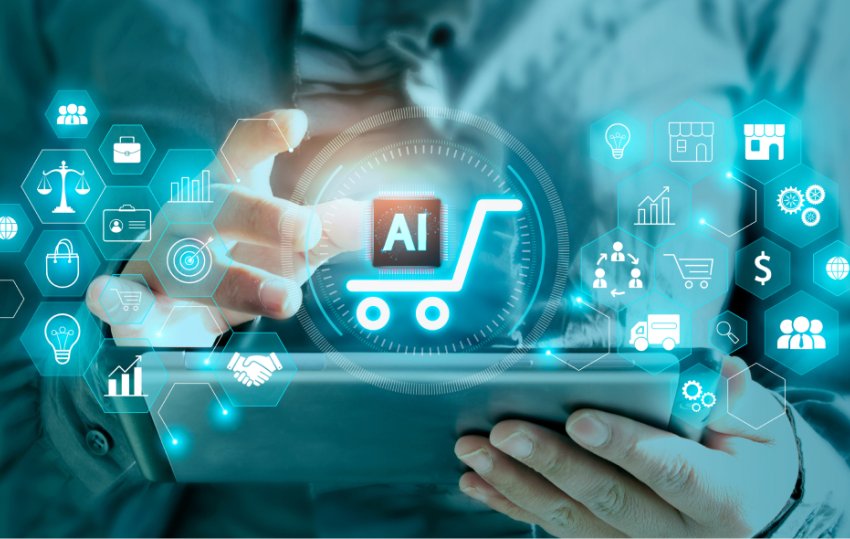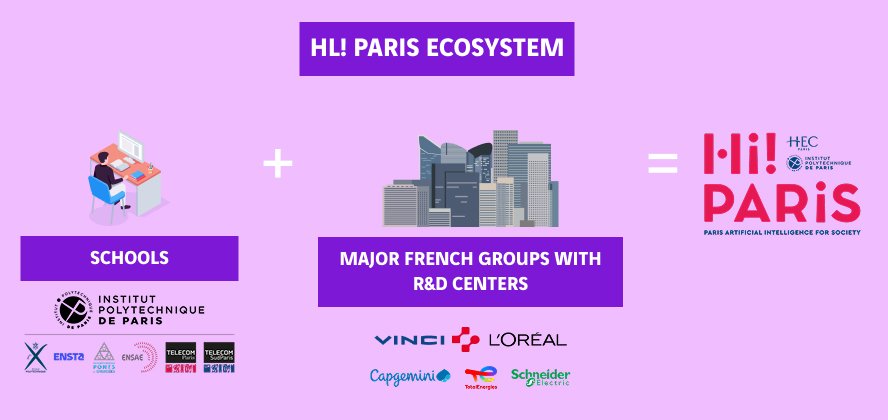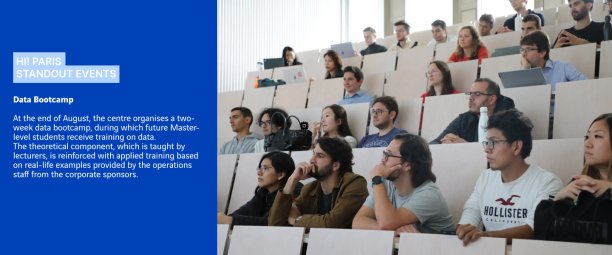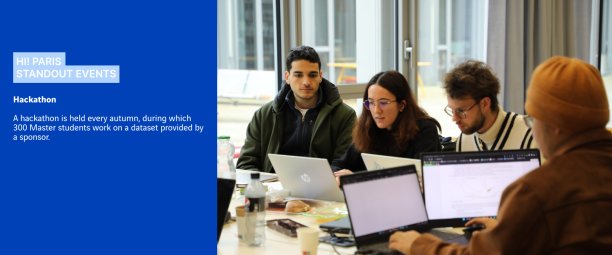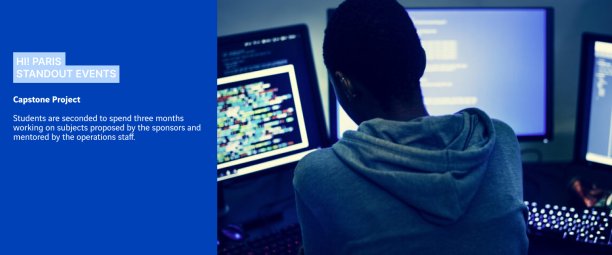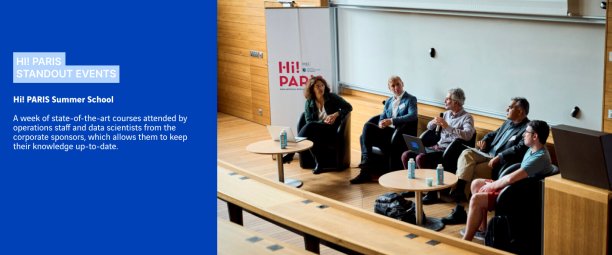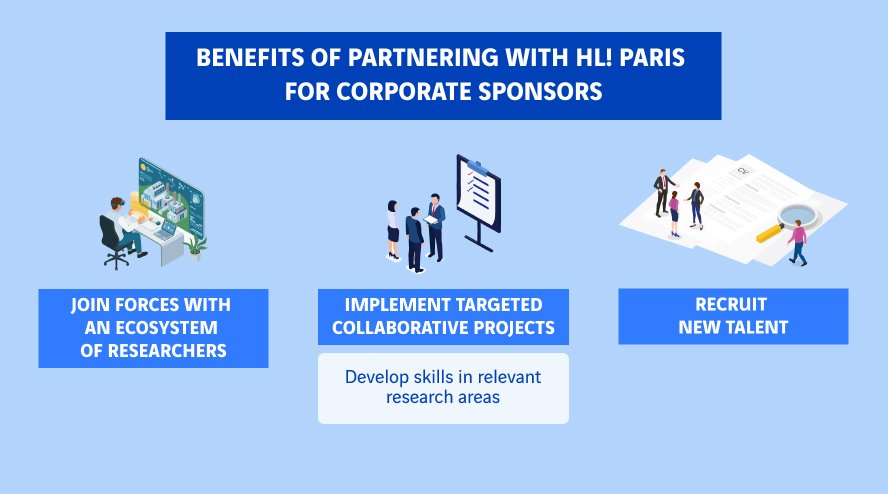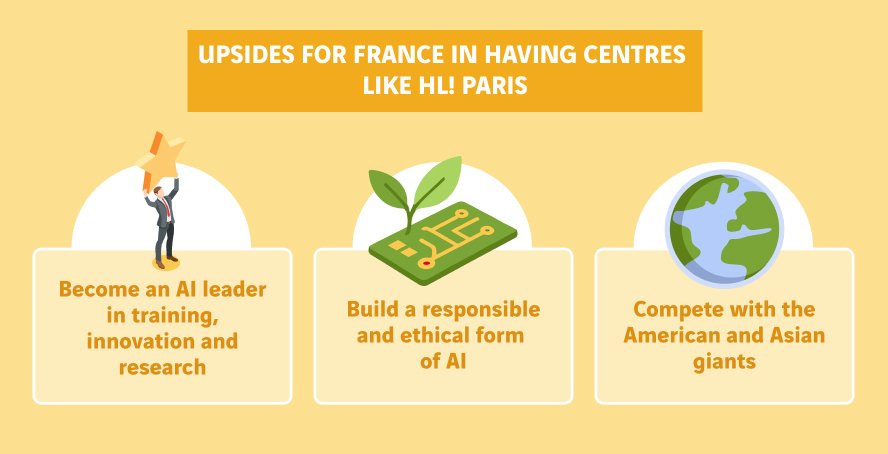Hi! PARIS: a centre of excellence for turning France into an AI champion
Ever since it was created by the Institut polytechnique de Paris and HEC Paris, Hi! PARIS has forged its reputation as a leading research centre for artificial intelligence (AI). Supported by VINCI since 2022, the centre fosters valuable ties between researchers, students and businesses, against the backdrop of the major challenge of building France’s sovereignty in AI. Read on for our interview about this centre of excellence with Gaël Richard, Scientific Director of Hi! PARIS, Bruno Daunay, Director of Leonard’s AI Programme and member of the Hi! PARIS operational steering committee, and Olga Chidlovsky, Head of Sponsorships and Partnerships at VINCI.
How did Hi! PARIS come about and what is its purpose?
Gaël Richard – Everything started with the observation that AI is a technological revolution that will transform every area of the economy and society. There is no way that higher education and research establishments can let this opportunity pass them by! The Institut polytechnique [editor’s note: this includes the École polytechnique, École nationale des ponts et chaussées, Télécom Paris, Télécom SudParis, ENSTA, and ENSAE Paris] already had several world-renowned teams working on various aspects of AI. We wanted to bring them together within a centre that would be capable of becoming a prime venue for pioneering innovation, teaching and research into AI, and rivalling the likes of MILA in Montreal or HAI in Stanford. Drawing on our longstanding ties with the business world, we turned to major French groups with their own R&D centres for financial support. That is how Hi! PARIS came about through funding from five private sponsors, namely VINCI, L'Oréal, Capgemini, TotalEnergies and Schneider Electric. Their support has been instrumental in recruiting new internationally renowned lecturers and quickly gaining recognition in this field.
In addition to providing financial support, what added value do corporate sponsors bring to the Hi! PARIS ecosystem?
Bruno Daunay – It is vitally important for students to have a gateway into the real world. VINCI and the other sponsors are on hand to share their use cases and data, so that the laboratories can work on them, while students can benefit from our knowledge. Basically, the idea is to encourage greater interaction between very high-level academics working on subjects with few operational applications, and our companies, given that we have a real need to apply these models. This is the rationale that underlies the different standout events organised by Hi! PARIS.
At the end of August 2025, the centre has organised a two-week data bootcamp, during which future Master-level students received training on data. The theoretical component, which is taught by lecturers, is reinforced with applied training based on real-life examples provided by the operations staff from the corporate sponsors. Similarly, a hackathon is held every autumn, during which 300 Master students work on a subject of interest to the sponsors and for which they can provide a dataset. Two other examples illustrate how Hi! PARIS builds stronger ties between researchers and students, and the business world, namely the “Capstone Projects”, where students are seconded to spend three months working on subjects proposed by the sponsors and mentored by the operations staff, and the Hi! PARIS Summer School, which features a week of state-of-the-art courses attended by operations staff and data scientists from the corporate sponsors, which allows them to keep their knowledge up-to-date. Meet-ups between sponsors and Hi! PARIS are organised so that everyone has a special opportunity to discuss subjects of interest to them with researchers and why not consider potential areas for doctoral and post-doctoral research.
What advantages does this partnership bring to the corporate sponsors and especially VINCI?
Bruno Daunay – AI was still an emerging topic in VINCI back in 2022, which is when we decided to sponsor Hi! PARIS. At the time, we were worried about lacking the necessary expert skills in this complex field. As such, the opportunity of partnering with a research ecosystem and consequently receiving support from researchers, doctoral students and post-doctoral students was extremely valuable.
Olga Chidlovsky : As far as VINCI was concerned, the idea was to better combine our engineers’ technical skills with the latest contributions from the research community. The challenges today are so complex that it takes more than operational technical expertise alone. Research is essential. In addition, this partnership reflects VINCI’s determination to diversify the expertise of VINCI’s current and future employees. When it comes to meeting different profiles, in this case leading AI researchers, Hi! PARIS is a tremendous breeding ground!
Gaël Richard – Exactly, one of the main aspects that attracts corporate sponsors to Hi! PARIS is the opportunity of meeting talented people and ultimately the prospect of recruiting them. In addition, setting up more targeted collaborative projects, such as theses under the Cifre scheme, can also help companies develop their skills in relevant research areas. Finally, this partnership allows our sponsors to hire external talent by showcasing their direct contacts with the research community. This is a major advantage for attracting engineers or researchers interested in the academic world, which sometimes suffers from a lack of use cases.
How can initiatives like Hi! PARIS also serve the general interest?
Gaël Richard – Hi! PARIS is not exclusively focused on the impact that AI can have on technology, but also on society as a whole, from work through to justice and education. Therefore, it is a major issue for society. In France’s case, another upside in having centres like Hi! PARIS is that it helps build sovereignty. We need national champions to avoid becoming reliant on American or Asian players for our access to AI. Having said that, excellence in training is not enough, because we cannot sit back and see our talented individuals hired by American or Chinese companies. Similarly, we cannot restrict our expertise to research, since foreign companies can also benefit from the rewards. That is exactly why France needs to forge its status as an AI leader in terms of training, innovation and research, with world-class centres located as close as possible to the economic ecosystem, and we have all the means and resources to achieve that aim. Paris is already an AI hotspot, especially through the solid mathematical skills possessed by our students and researchers. Therefore, France has all the legitimacy and credentials to become a global destination for AI, but also to build a responsible and ethical form of AI. Even though this technology is a tremendous tool, it can also become a weakness or a threat if we leave it in the hands of other powers. That is why achieving excellence in this field will be a strength, not only for our businesses and research institutions but also for our country as a whole.
Subscribe
Stay tuned : receive our newsletter
Every quarter, discover new articles, exclusive features and experts' views delivered straight to your inbox.
Most viewed
Explore more

Marina Lévy - Companies at the heart of ocean conservation issues
Marina Lévy, oceanographer, research director at the CNRS and ocean advisor to the president of the French National Research…

Access to water in Africa: persistent challenges despite major progress
When looking at the situation of safely managed water supplies in Africa, the glass could be seen as half full, rather than…

Building with and for nature
Whether creating barrages, stripping away topsoil, cutting down trees or digging channels, humans have spent thousands of…
